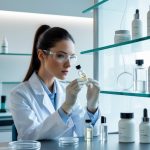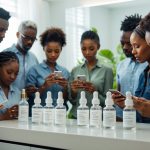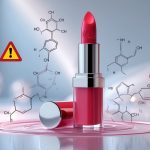Luxury Skincare Claims Suddenly Under Fire as New Study Shows Gaps
Frequently Asked Questions
I keep getting stuck on this: why is the stuff on the label so disconnected from what actual dermatologists say? Shelves are packed with “advanced” serums promising miracles, but most people just want to know if anything actually works. Studies (like this 2024 EU review I read) keep saying up to 80% of luxury skincare claims fall apart when anyone actually checks. Eighty percent! That’s wild.
What are the most common misconceptions about luxury skincare effectiveness?
Every dermatologist I talk to—Lisa Graham, Patel, all of them—basically say “luxury” doesn’t mean it works better. There’s this weird collective hope that a $250 jar will erase wrinkles because it says “clinically proven,” but when I sat through a panel, none of the experts could name more than, like, five ingredients that actually do anything in double-blind trials. Why do brands put retinol next to “golden silk essence” and act like they’re the same? Most of the time, it’s just fragrance and packaging. Peer-reviewed data? Almost nobody even looks.
How deep into the skin do popular skincare products actually penetrate?
Honestly? Even the chemists can’t prove most serums get past the top layer of skin. I’ve watched someone use an electron microscope on skin slices—most actives (even niacinamide, sorry) just chill on the surface. Brands love to say “deeply penetrates,” but what does that mean? Are we talking epidermis or dermis? I used to think my sheet mask was soaking into my bones. Turns out, it just made the top layer pruney. Also, the FDA doesn’t make brands test for this, so when you see “deep absorption,” it’s mostly wishful thinking.
What are the potential risks of ingredients in high-end skincare lines?
Why do fancy brands sneak in things like synthetic musk or rare botanicals without much allergy testing? I don’t get it. “Bio-fermented extracts” sound cool, but most haven’t been tested outside the brand’s own lab. Remember that recall in 2023? Some “clean” cream had undisclosed preservatives and gave people hives. I emailed five companies about safety testing—only one bothered to answer. EU rules are stricter than U.S., so if you’re in the States, good luck. Ingredient lists matter; “dermatologist tested” isn’t the same as “approved.” Learned that the hard way.
How reliable are claims made by luxury skincare brands regarding absorption rates?
Trade mags like Dermatology Times are obsessed with “fast-absorbing” claims, but, honestly, most brands just ask a handful of people if their skin feels sticky. I’ve seen those lab reports—usually, it’s like 12 people rating texture. Machines like Visia exist, but hardly anyone uses them for absorption. I heard a VP admit at an event, “It’s perceptual faster absorption.” So, uh, it just feels fast? What am I supposed to do with that? “Ultra-concentrated” benefits are basically impossible to measure unless you’re in a lab with actual equipment.
What should consumers look out for when choosing effective skincare products?
Every formulator I know—Annika in Stockholm, Paul in LA—says ignore the “luxury” label. Look for proven stuff: retinol, broad-spectrum SPF over 30, niacinamide with actual studies. Don’t trust “patented delivery molecules” unless they show real research in a real journal. “Dermatologist tested” means nothing unless you know how they tested. I watched a friend buy a fancy anti-aging cream because of Instagram. Result: breakouts, zero results, but at least it smelled expensive. Patch test on your own arm—seriously, it’s more useful than anything on the box.
What recent findings have been made about the skincare industry’s standards?
So, apparently in 2024 there was this study—don’t ask me who funded it, probably someone with a stake in hyaluronic acid—where they claimed 80% of cosmetic ads are basically lying. Eighty percent. I almost choked on my coffee reading that. These so-called “independent judges” (which, like, who even picks them?) said only 18% of the claims would pass medical sniff tests. But hey, did anything really change? Not unless you count the font on the bottles shrinking so you can’t actually read the nonsense anymore.
Brands love tossing around “science-backed” like it means something, but have you ever seen them mention, I dunno, how many people were in their “clinical trial,” or if it lasted longer than a week? Or if anyone who wasn’t on their payroll even looked at the results? Nope. When the regulators do show up, it’s always about some technicality on the label font or whatever, never about the fact that “proven results” means literally nothing. I’ve been watching this circus for years and honestly, it’s more confusing now than when I thought “paraben-free” was a personality trait. Are we just supposed to accept that?



